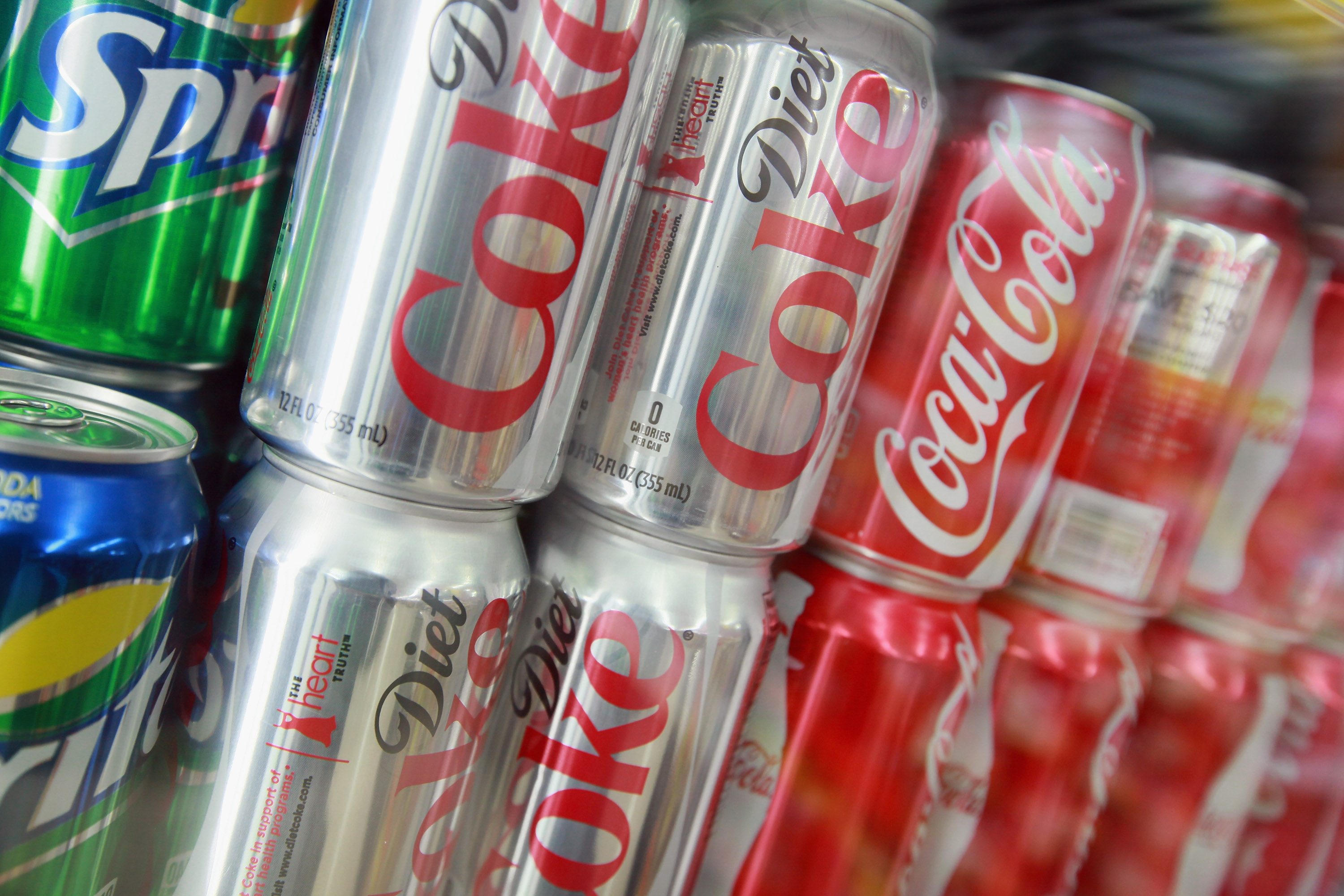Philadelphia's soda tax cut sugary beverage sales in half

A free daily email with the biggest news stories of the day – and the best features from TheWeek.com
You are now subscribed
Your newsletter sign-up was successful
Increasing taxes might not always be a very popular idea, but it might be a good strategy when it comes to encouraging healthy choices.
A tax on sugary beverages decreased sales of unhealthy sodas and other artificially-sweetened drinks, a new study, published in the Journal of the American Medical Association on Tuesday, found.
The "soda tax" was first enacted in 2017, making Philadelphia the second American city to do it, CNN reports. And in the area affected by the tax, sales of sugary beverages dropped 51 percent — a huge amount.
The Week
Escape your echo chamber. Get the facts behind the news, plus analysis from multiple perspectives.

Sign up for The Week's Free Newsletters
From our morning news briefing to a weekly Good News Newsletter, get the best of The Week delivered directly to your inbox.
From our morning news briefing to a weekly Good News Newsletter, get the best of The Week delivered directly to your inbox.
Some of that drop may be slightly exaggerated, as soda sales in counties nearby Philadelphia, which didn't have the tax in effect, rose. So some people may have traveled to get their drinks at a more agreeable price. But even with this factor, the study found that the overall drop in sugary drink sales came to 38 percent, a not-insignificant amount.
The tax raised the price of sweetened beverages from 5.4 cents an ounce to 6.2 cents an ounce — for the average soda can, that's an increase of just about 10 cents. But such a small change had a pretty big effect. Considering that sugar leads to a number of health problems including high cholesterol, fatty liver disease, and diabetes, scientists are calling for an expanded tax to encompass the whole country, in hopes that we all might drink less soda.
"We have tried, and failed, to curb sugary drink intake through education and individual choices alone," said Natalie Muth, a pediatrician and registered dietitian. "We need policy changes that will help reduce sugary drink consumption," especially for children and teens, she said. Read more at CNN.
A free daily email with the biggest news stories of the day – and the best features from TheWeek.com
Shivani is the editorial assistant at TheWeek.com and has previously written for StreetEasy and Mic.com. A graduate of the physics and journalism departments at NYU, Shivani currently lives in Brooklyn and spends free time cooking, watching TV, and taking too many selfies.
-
 The ‘ravenous’ demand for Cornish minerals
The ‘ravenous’ demand for Cornish mineralsUnder the Radar Growing need for critical minerals to power tech has intensified ‘appetite’ for lithium, which could be a ‘huge boon’ for local economy
-
 Why are election experts taking Trump’s midterm threats seriously?
Why are election experts taking Trump’s midterm threats seriously?IN THE SPOTLIGHT As the president muses about polling place deployments and a centralized electoral system aimed at one-party control, lawmakers are taking this administration at its word
-
 ‘Restaurateurs have become millionaires’
‘Restaurateurs have become millionaires’Instant Opinion Opinion, comment and editorials of the day
-
 TikTok secures deal to remain in US
TikTok secures deal to remain in USSpeed Read ByteDance will form a US version of the popular video-sharing platform
-
 Unemployment rate ticks up amid fall job losses
Unemployment rate ticks up amid fall job lossesSpeed Read Data released by the Commerce Department indicates ‘one of the weakest American labor markets in years’
-
 US mints final penny after 232-year run
US mints final penny after 232-year runSpeed Read Production of the one-cent coin has ended
-
 Warner Bros. explores sale amid Paramount bids
Warner Bros. explores sale amid Paramount bidsSpeed Read The media giant, home to HBO and DC Studios, has received interest from multiple buying parties
-
 Gold tops $4K per ounce, signaling financial unease
Gold tops $4K per ounce, signaling financial uneaseSpeed Read Investors are worried about President Donald Trump’s trade war
-
 Electronic Arts to go private in record $55B deal
Electronic Arts to go private in record $55B dealspeed read The video game giant is behind ‘The Sims’ and ‘Madden NFL’
-
 New York court tosses Trump's $500M fraud fine
New York court tosses Trump's $500M fraud fineSpeed Read A divided appeals court threw out a hefty penalty against President Trump for fraudulently inflating his wealth
-
 Trump said to seek government stake in Intel
Trump said to seek government stake in IntelSpeed Read The president and Intel CEO Lip-Bu Tan reportedly discussed the proposal at a recent meeting